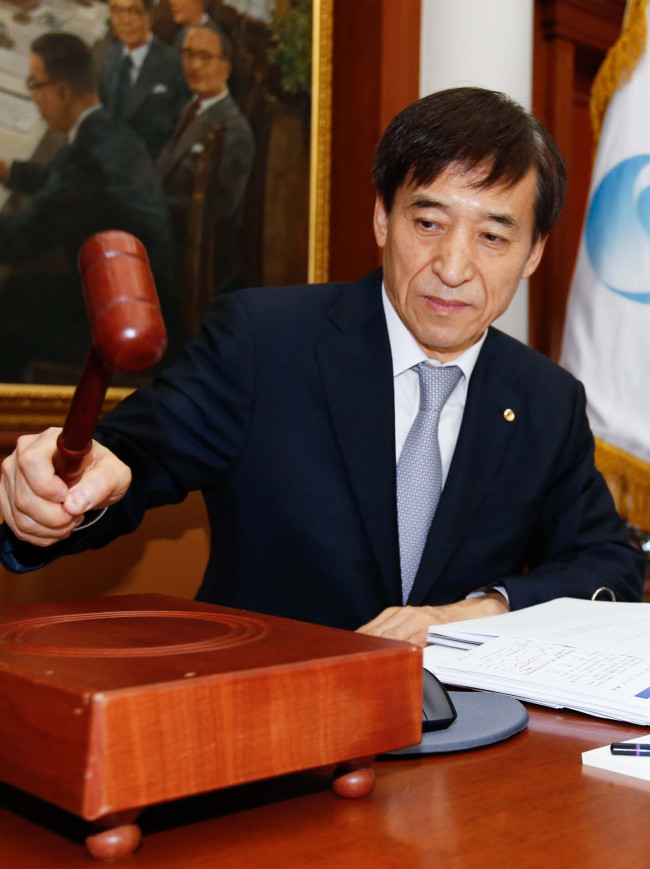[THE INVESTOR] South Korea’s central bank kept its key base rate unchanged at 1.25 percent for third straight month on Friday, as largely expected by market analysts, citing high household debt and uncertainties concerning the US Federal Reserve’s monetary policy.
The decision to freeze its September rate was unanimous, as the Bank of Korea already noted in its minutes of last month’s policy committee meeting that a rapid increase in household debt was posing a risk to the economy.

Also, the difficulty in forecasting the US central bank’s rate for this month is making the BOK hold its position for now, and wait and see the outcome of the Federal Open Market Committee meeting later this month.
BOK Gov. Lee Ju-yeol said that should the Fed decide to raise its rate, the Korean central bank will have to increase its effective lower bound on interest rates to cushion the economy from the possibility of capital outflows.
“Korea’s key rate (normally) should be higher than that of a country with a key currency,” BOK Gov. Lee told reporters after the policy meeting on Friday.
“A higher US rate will bring about a stronger dollar following capital outflows from emerging economies,” he added, noting that Korea is less likely to see risk in this regard given its high sovereign ratings and foreign demand for its fixed-income securities.
He also saw a slight improvement in the economy with an expectation of a moderate growth for the rest of this year on increased consumption, despite a slowness in exports.
Korea’s household borrowings in August increased by 8.7 trillion won ($8 billion), reaching at 682.4 trillion won, the second fastest increase since October last year when the debt jumped more than 9 trillion won.
The country also saw its household mortgages increase at the fastest pace by 6.2 trillion won in August on-month.
BOK Gov. Lee told reporters that the fast increase in household debt was one of the reasons why it maintained its key base rate, but it expects the debt will wind down as the government tries to tighten its housing supply.
“I believe the debt pace will slow down as the government and regulators increase their market monitoring with the policy (to control its housing supply),” the country’s top monetary policymaker said.
Industry observers criticized the government’s latest policy on housing supply restrictions as it has only fueled purchases before the number of apartments decrease, and the measure does not include further extending the timeframe of apartment resale after acquisitions.
With the central bank’s rate freeze for this month, analysts forecast the BOK to lower its rate to further support the government’s fiscal stimulus for growth.
“In the fourth quarter, we expect the central bank to re-embark on a mini easing cycle as it becomes clear that underlying growth has not picked up materially in the second half of the year and fresh stimulus will be needed to support growth in 2017,” said Joseph Incalcaterra, economist at HSBC Global Research.
By Park Hyong-ki/The Korea Herald (hkp@heraldcorp.com)







![[KH Explains] How should Korea adjust its trade defenses against Chinese EVs?](http://res.heraldm.com/phpwas/restmb_idxmake.php?idx=644&simg=/content/image/2024/04/15/20240415050562_0.jpg&u=20240415144419)










![[Today’s K-pop] Stray Kids to return soon: report](http://res.heraldm.com/phpwas/restmb_idxmake.php?idx=642&simg=/content/image/2024/04/16/20240416050713_0.jpg&u=)